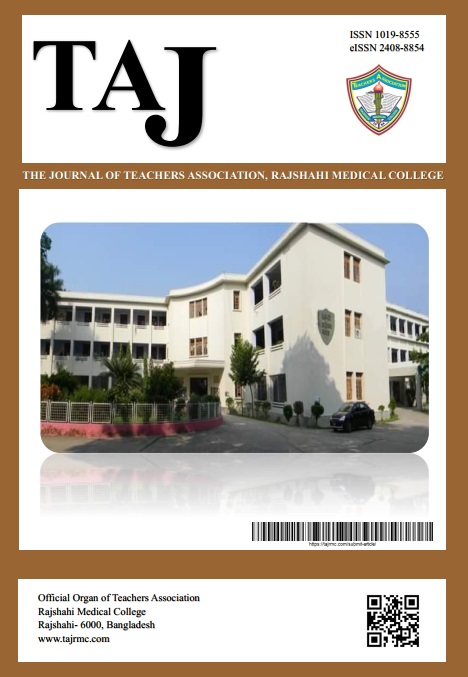| Evaluating The Outcome of Radical Cystectomy with and Without Neoadjuvant Chemotherapy in The Treatment of Muscle Invasive Urinary Bladder TCC |
| Md. Tafiqul Islam, Md. Mashiur Arefin, Md. Abdul Bari, Mst. Sufia Sultana, Md. Abdur Rahim |
| https://doi.org/10.62469/taj.v037i02.044 |
| Pdf Download |
Background: Muscle-invasive bladder cancer (MIBC) presents significant treatment challenges. Neoadjuvant chemotherapy (NACT) has been posited as a means to improve surgical outcomes by downstaging tumors prior to radical cystectomy. Methods: This quasi-experimental study involved 60 patients with diagnosed MIBC, divided equally into a study group receiving NACT followed by radical cystectomy and a control group undergoing cystectomy alone. Data were collected on demographic characteristics, tumor staging pre- and post-NACT, intraoperative blood loss, surgical complications, and histopathological outcomes. Statistical analysis was conducted to compare the outcomes between the two groups. Result: The study demonstrated a significant increase in patients downstaged to N0 post-NACT (93.33% post-NACT vs. 83.33% pre-NACT, p=0.399) and a notable reduction in positive surgical margins in the NACT group compared to the control group (0% vs. 13.33%, p=0.038). Additionally, there was a significant decrease in intraoperative blood loss and difficulties related to resection, anastomosis, and stoma formation post-NACT (p=0.001). However, early and late post-operative complications did not show significant differences between the two groups. Conclusion: Neoadjuvant chemotherapy significantly enhances the likelihood of achieving negative surgical margins and complete tumor resection, and reduces intraoperative complications in patients undergoing radical cystectomy for muscle-invasive bladder cancer.

